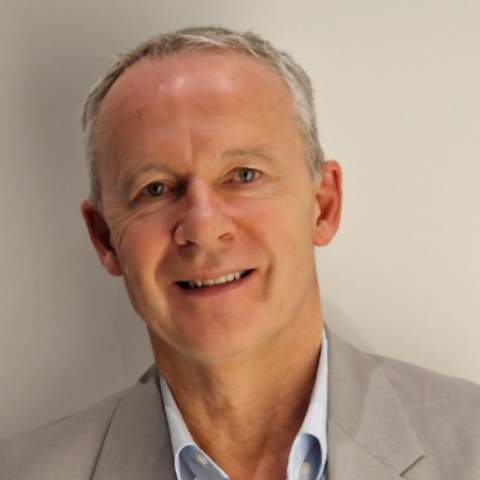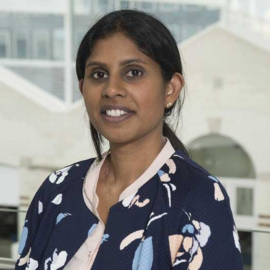Key information
Programme overview
In the 21st century, healthcare is experiencing a profound shift towards a more holistic approach to health and wellbeing, transcending the conventional boundaries of ‘sick care.’ Such an evolving landscape is driven by technological advances and a growing demand for more personalised care and support.
As the healthcare ecosystem evolves, staying at the forefront has never been more critical. The future of industries serving healthcare hinges on our collective ability to harness innovation, adapt to emerging and disruptive technologies, navigate complex regulatory frameworks, and reshape organisational cultures to meet the changing needs of individuals and populations.
The Leading Systemic Innovation in Healthcare course is a five-day programme designed to empower healthcare provider executives, policymakers, and industry leaders with the knowledge, skills, and insights needed to lead and thrive in this ever-evolving landscape.
The programme will feature world-leading experts and pioneers in AI and healthcare technologies, including speakers from Google Health.
Throughout the course, you will explore and dissect critical themes such as systemic innovation, cutting-edge healthcare technologies, AI-driven advancements, policies and regulations, and leadership strategies for fostering innovation. Our expert-led sessions will offer a deep dive into the practical implementation of these concepts, ensuring you are equipped to drive impactful change within your organisation.
Leading Systemic Innovation in Healthcare represents a transformational journey that embraces a broader and multi-faceted perspective on healthcare. This programme will empower you to redefine healthcare in your organisation, adapting to emerging technologies and delivering personalised, patient-centred care.
Embark on this extraordinary journey to elevate your leadership, expand your knowledge across healthcare domains, and drive meaningful innovation that will shape the future of healthcare.
Who should attend?
Leading Systemic Innovation in Healthcare is designed for healthcare provider executives, policymakers, and industry leaders from all areas of the healthcare value chain, such as pharma, medtech, and IT, who are influential in the sector's innovation.
This healthcare executive education programme will guide you towards greater innovative and entrepreneurial thinking to plan and deliver health services to meet emerging global needs.
Our programme is tailored to a wide audience across the healthcare spectrum, including:
- Healthcare Providers who want to re-frame approaches to health and implement effective and sustainable care delivery models, positioning their institution as a leader in the healthcare revolution.
- Pharma/medtech organisations who seek the expertise to capitalise on rapid scientific advancements while accelerating the launch of groundbreaking products into more complex healthcare and regulatory environments.
- Biotech Firms interested into the latest advancements in healthcare technologies to measure impact and scale innovations effectively.
- Digital Health and Telehealth Platforms who want to deepen their understanding of the ethical considerations, design principles, and measurable impacts of digital health innovations.
- ·Public Health Organisations who want to implement systems thinking, behavioural change, and multi-stakeholder engagement to design and implement public health initiatives that are innovative, scalable, and impactful.
- Health Insurers who want to acquire strategic insights into healthcare ecosystems, business models, and regulatory changes to lead their company through healthcare’s rapidly evolving landscape.
- Health Policy Makers and Regulators who want to develop a multi-faceted understanding of the healthcare landscape to craft policies that foster innovation while ensuring public safety
- Investors and Venture Capitalists who want to deepen their knowledge of the metrics, models, and case studies to identify the most promising and scalable healthcare innovations.
- Third sector and NGOs who want to gain knowledge of systems framework and tools to design effective, innovative programmes that can make a significant impact on public health.
Learning Objectives
Throughout our programme on leading innovation in healthcare, you will develop the skills and capabilities to:
- Examine the principles of innovation, systemic innovation, and their vital roles in healthcare.
- Reframe approaches to health and care design, implementing systems-based framework and tools to your health innovation challenges.
- Analyse the impact of health policies and regulations on healthcare innovation and learn strategies to navigate this complex landscape to design policies that foster innovation.
- Identify and evaluate the impact of key technological trends on healthcare and your own business and explore how you can embrace and help to accelerate these trends.
- Cultivate leadership strategies and create a culture that fosters and nurtures both systemic and product/service innovation within your organisation.
- Develop practical strategies for implementing both systemic and product/service innovation in healthcare and identify how to measure their impacts.
Learning journey
Leading Systemic Innovation in Healthcare is a five-day programme that unfolds through a series of immersive sessions, interactive workshops, and offsite visits, each delving deeper into key aspects of healthcare innovation.
The programme begins by examining the broader landscape of 21st century healthcare, offering insights into future health trends. It provides a deep understanding of both systemic and product/service innovations within the healthcare sector. It then delves into the intricacies of the policy and regulatory landscape and examines cutting-edge healthcare technologies, AI-driven advancements, and emerging trends in next-generation healthcare. The programme concludes with strategies to develop leadership and culture for innovation as well as implement innovation in healthcare and industry settings.
Attendees will have the opportunity to network with peers and bring their own health innovation project, which will be explored and developed within the framework of our programme material.
The core themes of our programme include:
- The future of healthcare and systemic innovation in healthcare
- Policy and regulations in healthcare innovation
- Technological trends and personalised medicine in healthcare
- Leadership and culture for innovation in healthcare
- Planetary health and sustainable healthcare
Innovation, Systemic Innovation & Systems Thinking in Healthcare
Acquire a foundational understanding of healthcare innovation. This includes emphasising the long-term future of technology-enabled healthcare and delving into the essentials of both product/service and systemic innovation. Understand systems and systems change in practice and analyse barriers to collaboration in healthcare systems change. Begin the work on your own innovation challenge.
Sessions on day one will include:
- Welcome and introduction.
- The long-term future of healthcare in a technology-enabled 21st century
- The fundamentals of product/service and systemic innovation
- Enabling collaboration and systems change in healthcare
- Workshop: Individual health innovation projects
Ecosystem Design for Healthcare Innovation, Data Visualisation, Public Health and Regulations
Delve deeper into the interplay between public health and policy to assess the impact of regulations and policies on healthcare innovation.
Gain exclusive insights into pioneering healthcare analytics research during an off-site visit to the Data Science Institute. Explore how healthcare can transition from silos to ecosystems.
Sessions on day two will include:
- Offsite visit: The Data Science Institute
- Moving from silos to systems: Imagining, collaborating and learning in ecosystems
- Workshop: Individual health innovation projects
- A panel session on public health and inequalities
- A panel session on public health and inequalities
- Experiential Activity: The Chemical Kitchen
- Welcome drinks and reception
Technological Trends and Care Delivery Innovation with Google Health, Personalised and Functional Medicine, Gaining Buy-in to Lead Systemic Change
Discover how digital technologies are reshaping healthcare with experts from Google Health. Explore personalised and functional medicine, and learn how to gain stakeholder buy-in for systemic change.
Bring your knowledge to life with an off-site visit to one of the UK’s fasted growing life sciences ecosystems, Paddington Life Sciences.
Sessions on day three will include:
- Digital transformation and care delivery innovation in healthcare with Google Health
- The future of personalised and functional medicine
- Gaining buy-in, leading change in your ecosystem
- Offsite visit: Exploring the Paddington Life Sciences Ecosystem
Leadership, Culture for Innovation, Care Pathway Redesign, and Mental Health
Gain insights into the principles and strategies by which organisational culture and leadership drive innovation and care redesign.
Dive into change management theories for cultivating a learning culture within healthcare, and reflect on the crucial role of mental health in healthcare innovation.
Sessions on day four will include:
- Workshop: Individual health innovation projects
- Fostering a culture of innovation and care redesign in healthcare
- Fostering change management and the creation of a learning culture
- Integrating mental health
- Programme Dinner
Planetary Health, Sustainable Healthcare and Bringing it all together
Explore the vital connection between human and planetary health to drive sustainable innovation and transformative change in healthcare systems.
Conclude your transformative journey by showcasing your own innovation project, applying everything you’ve learned throughout the programme.
Receive valuable feedback from your peers to refine and further develop your innovative initiatives.
Sessions on day five will include:
- Planetary health and sustainable healthcare
- Workshop: Individual health innovation projects
- Health innovation project presentations
- Closing and final remarks
Programme faculty and experts
Leading Systemic Innovation in Healthcare is enriched by insights from Imperial world-leading faculty and industry experts who will expose you to the new evidence-based approaches to innovation in healthcare.

Adam Kingl
A globally renowned expert in innovating management practice and strategy, and leading the modern workforce, Adam Kingl is an authority on generational paradigms in the workplace, the future of work and capitalism, and fulfilling organisational and personal purpose.
Adam currently leads and develops executive education at prestigious institutions such as London Business School, Hult International Business School, Imperial Business School, Moller Institute-Churchill College-University of Cambridge and the UCL School of Management, where he helps boost the careers and businesses of senior executives, and high potential professionals.

Andy Wilkins
Andy is a futurist, speaker, podcaster and founder of Future Health – a new think tank and systems convener exploring the long-term vision for health and healthcare systems in a technology enabled 21st century. He has undertaken numerous healthcare innovation and transformation projects and has authored several high-profile reports for the NHS and policy makers on the future of healthcare. Andy is a visiting lecturer to UCL and a champion for a new future based on holistic health that includes wrapping holistic, person-centred health and care around the needs of individuals and communities and the transformation from silos to health ecosystems that will make this possible.

Susannah Howard
Susannah is the Integrated Care Partnership Director for the Suffolk and North East Essex Integrated Care System (ICS), which in 2025 was rated in the highest national performance category (Category 1) by NHS England and is widely recognised for its exceptional partnership and system working.
A psychologist by background, Susannah has held senior roles across mental health, health improvement, and NHS innovation, including founding ‘Enable East’ and working with the World Health Organisation. She has been a guest lecturer at Harvard University Extension School, is a member of the All Party Parliamentary Group and National Strategic Council for Obesity.

Chris Naylor
Chris is Senior Fellow at The King’s Fund & Policy Lead at Centre for Sustainable Healthcare. Chris has a background in health policy and research and is passionate about creating sustainable health and care services that are resilient for the future. He has extensive experience working across a range of health policy issues at the UK health think tank, The King’s Fund, and also works as Policy Lead at the Centre for Sustainable Healthcare. In previous roles he has worked at the Institute of Psychiatry, King’s College London and the Public Health Foundation of India in Delhi. He has an MSc in Public Health from the London School of Hygiene & Tropical Medicine and a BA in natural sciences from the University of Cambridge. He is a trained coach and an experienced facilitator and works with leaders in the health system to support practical change.

Suki Balendra
Dr Suki Balendra is Director of strategic partnerships for Paddington Life Sciences. She has a wide range of leadership experience with a 20-year background facilitating, growing, and promoting health research in the UK across sectors including industry, academia, NHS, and central government.
Suki is also director of the North West London Clinical Trials Alliance which aims to improve access to and the quality of clinical research in the region.
Suki joined Imperial Healthcare NHS Trust in 2014 and has since worked across several operational and leadership positions in the clinical research sector. Prior to joining the Trust, Suki started her career in the Biotechnology Industry at Abbott Diagnostics Ltd. Within a Good manufacturing practice (GMP) environment she worked on several operational projects to improve efficiency, cost, and reproducibility.
Suki has a PhD from the University of Warwick, and she is a passionate advocate for UK PLC as the number one destination to conduct clinical trial, in a way that they are open to everyone within the communities we serve.

Geoff Mulgan
Sir Geoff Mulgan CBE is Professor of Collective Intelligence, Public Policy and Social Innovation at University College London (UCL). Prior to that, he was Chief Executive of Nesta, the UK's innovation foundation, between 2011 and the end of 2019. From 1997 to 2004 Geoff had roles in the UK government including director of the Government's Strategy Unit and head of policy in the Prime Minister's office. From 2004 to 2011 he was the first Chief Executive of The Young Foundation. He was the first director of the think-tank Demos; and has been a reporter on BBC TV and radio.
Geoff helped found many organisations including Demos, the Young Foundation, the Social Innovation Exchange (SIX), Uprising, Studio Schools Trust, Action for Happiness, the Alliance for Useful Evidence, the Australia Centre for Social Innovation and Nesta Italia. He has co-chaired a World Economic Forum group looking at innovation and entrepreneurship in the fourth industrial revolution.
He has pioneered many ideas used by governments and others – including creative economy strategies, joined-up government, anticipatory regulation, experimentalism, open innovation and problem-solving methods. Geoff has given TED talks on the future economy, happiness and education.

Yvonne Doyle
Yvonne Doyle CB FMedSci brings over 40 years’ experience as a public health doctor who has worked in senior roles in the NHS, government, academic, independent sectors and internationally.
She provided leadership for health for the population of London and Statutory Adviser to consecutive Mayors of London; leadership in England for health protection during the COVID-19 pandemic and the Medical Director for Public Health at NHS nationally.
She currently acts as a senior adviser to the WHO Europe on ageing in good health. She is also a non-executive at a London teaching hospital, a Trustee of The King’s Fund, of Pathway a charity for homeless persons, and undertakes academic teaching and examining. Yvonne also chairs the Health Services Committee at the UK Faculty of Public Health.

Francesca Cleugh
Dr Francesca Cleugh is a Paediatric Emergency Medicine Consultant and Deputy Director of Innovation and Improvement at Imperial Healthcare NHS Trust, London. Since early in her career, she has complemented her clinical training with education, quality improvement and leadership development and has remained curious about the way health systems work, striving to collaboratively innovate improvements. She is leading strategic programmes across the Trust to support staff to build learning, improvement and innovation into everything they do.
Francesca continues to work at local, regional and national level in being proactive to responding to ongoing and changing pressures on the paediatric urgent and emergency care system. Through various initiatives and roles over time, she has championed a whole-system approach to innovating improvements, ensuring delivery of safe quality care.
She established an innovative acute hospital at home service for children across North West London and continues to share her expertise in development of national policy for hospital at home for children. Francesca is currently urgent and emergency care lead for children and young people in the North West London’s Integrated Care System.
